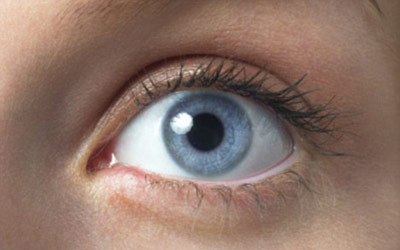|
 Sixth sense: Scientists have proved that humans really do have a sixth sense - that lets them detect magnetic fields. |
|
It has long been known as ESP, Spider Sense, or the ability to see things before they happen. But now scientists have proved that humans really do have a sixth sense - that lets them detect magnetic fields. Tests have shown that mankind may have the same innate sense of Earth’s magnetic field that has long been proved to exist in animals. By putting a protein from the human retina into fruit flies, researchers noticed that the insect modified its flight path just as if its eye had not been altered. This suggests that the 'sixth sense' does exist in humans but we might not be aware of it. Animals use such sight to navigate long distances during migration or, in the case of birds, to ‘see’ where they are going. The complex tests involved examining the process by which light goes through a bird’s eye, which has intrigued the scientific community for more than 30 years. In the late 1970s, the physicist Klaus Schulten concluded that birds navigate by relying on geomagnetically sensitive biochemical reactions in their eyes. Tests have shown that the special cells in the eye carry out this function using the protein cryptochrome. Professor Reppert’s team used wild fruit flies and replaced their version of cryptochrome with the human equivalent then put them in a maze with each wing wrapped in a metal coil. They then sent a current through it so that the coil was magnetised in a way which mimicked Earth’s electromagnetic field. The flies responded in exactly the same way as if they had their own cryptochrome, by either avoiding the magnetic fields or moving towards them if the researchers had placed sugar nearby. The new study was published in the journal Nature Communications. (Read by Nelly Min. Nelly Min is a journalist at the China Daily Website.) (Agencies) |
一直以来,第六感也被称为超感知觉、蜘蛛感应,也就是预知未来事物的能力。 但现在科学家已证实人类确实有第六感,正是这第六感让人类能够感应到磁场。 试验表明,人类可能像其他动物一样拥有能够感知地球磁场的先天感应力,而动物的这一感应力在很久以前就被证实了。 通过将人类视网膜的一粒蛋白质植入果蝇的眼中,研究人员注意到,果蝇调整了它的飞行路线,就像眼睛没有做过手脚一样。 这表明,人类确实存在“第六感”,只是我们可能没有意识到。 动物在长途迁徙过程中利用这一感应力给自己导航,鸟类则凭借这一感应力“看到”前方飞行的方向。 这些复杂的试验包括观察光进入鸟的眼睛的过程,科学界在这方面已经研究了30余年。 在20世纪70年代晚期,物理学家克劳斯•舒尔腾得出结论说,鸟类依靠眼睛内能够感应地磁的生物化学反应来导航。 测试表明,眼睛内部某些特别的细胞在蛋白隐色素的作用下能够实现这一功能。 里珀特教授的研究团队把野生果蝇眼内的蛋白隐色素换成人类的蛋白隐色素,然后将果蝇放在一个迷宫中,每只翅膀都用金属丝包裹起来。 然后他们将电流导入金属丝,这样金属丝就有了磁性,就像地球的电磁场一样。 果蝇做出的反应就像自己的蛋白隐色素没被换过一样,既能够避开磁场,也能够飞向研究人员放了糖的磁场附近。 这一新研究发表在《自然通讯》杂志上。 相关阅读 (中国日报网英语点津 陈丹妮 编辑:冯明惠) |
|
Vocabulary: ESP: extrasensory perception(the ability to know things without using the senses of sight, hearing, etc., for example to know what people are thinking or what will happen in the future) 超感知觉 innate: (of a quality, feeling, etc.) that you have when you are born(品质、感情等)天生的;先天的;与生俱来的 retina: a layer of tissue at the back of the eye that is sensitive to light and sends signals to the brain about what is seen(视网膜) navigate: to find your position and the direction you need to go in(导航;确定……的位置和方向) intrigue: to make somebody very interested and want to know more about something(激起……的兴趣;引发……的好奇心) maze: a system of paths separated by walls or hedges built in a park or garden, that is designed so that it is difficult to find your way through(迷宫) coil: a series of circles formed by winding up a length of rope, wire, etc. (绳索、金属线等的)圈,卷,盘 |
